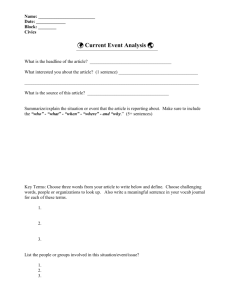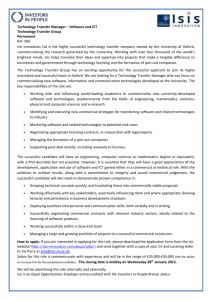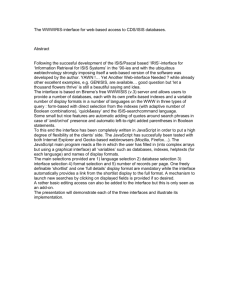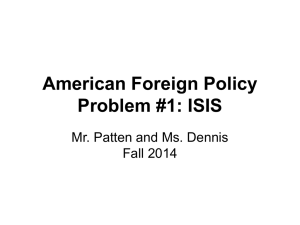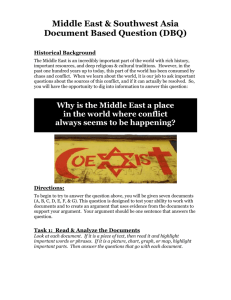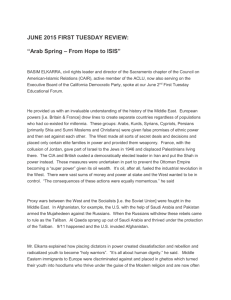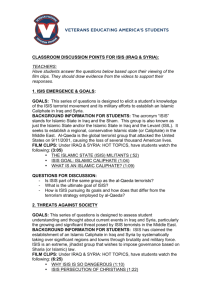AlternativestoAirstr..
advertisement
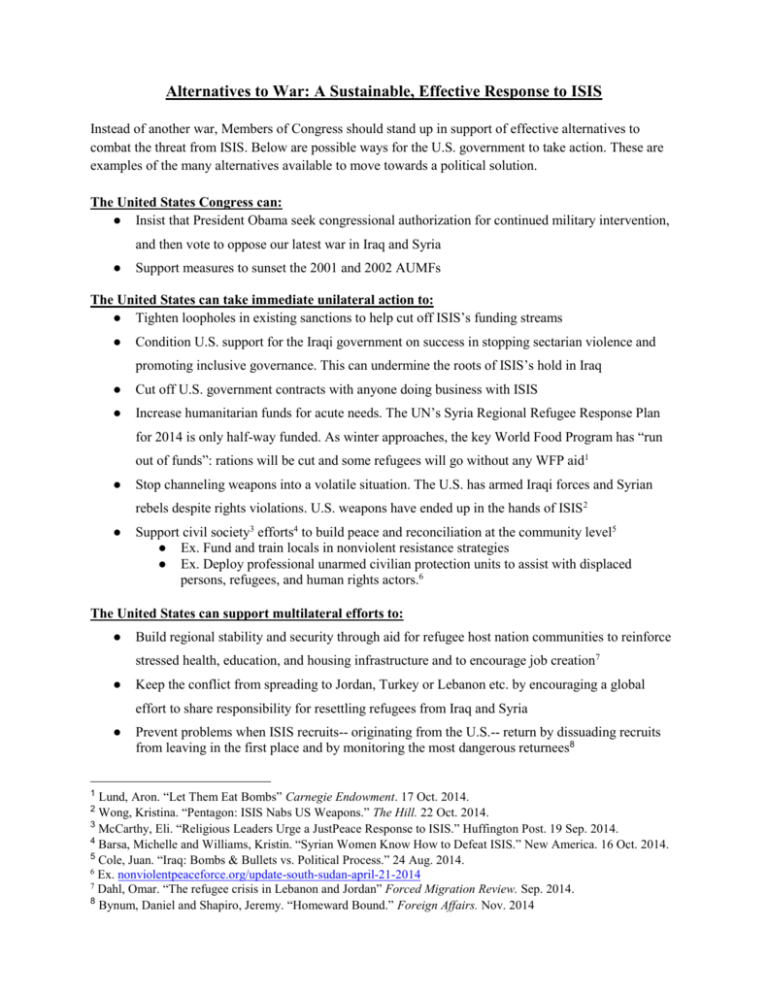
Alternatives to War: A Sustainable, Effective Response to ISIS Instead of another war, Members of Congress should stand up in support of effective alternatives to combat the threat from ISIS. Below are possible ways for the U.S. government to take action. These are examples of the many alternatives available to move towards a political solution. The United States Congress can: ● Insist that President Obama seek congressional authorization for continued military intervention, and then vote to oppose our latest war in Iraq and Syria ● Support measures to sunset the 2001 and 2002 AUMFs The United States can take immediate unilateral action to: ● Tighten loopholes in existing sanctions to help cut off ISIS’s funding streams ● Condition U.S. support for the Iraqi government on success in stopping sectarian violence and promoting inclusive governance. This can undermine the roots of ISIS’s hold in Iraq ● Cut off U.S. government contracts with anyone doing business with ISIS ● Increase humanitarian funds for acute needs. The UN’s Syria Regional Refugee Response Plan for 2014 is only half-way funded. As winter approaches, the key World Food Program has “run out of funds”: rations will be cut and some refugees will go without any WFP aid1 ● Stop channeling weapons into a volatile situation. The U.S. has armed Iraqi forces and Syrian rebels despite rights violations. U.S. weapons have ended up in the hands of ISIS2 ● Support civil society3 efforts4 to build peace and reconciliation at the community level5 ● Ex. Fund and train locals in nonviolent resistance strategies ● Ex. Deploy professional unarmed civilian protection units to assist with displaced persons, refugees, and human rights actors.6 The United States can support multilateral efforts to: ● Build regional stability and security through aid for refugee host nation communities to reinforce stressed health, education, and housing infrastructure and to encourage job creation7 ● Keep the conflict from spreading to Jordan, Turkey or Lebanon etc. by encouraging a global effort to share responsibility for resettling refugees from Iraq and Syria ● 1 Prevent problems when ISIS recruits-- originating from the U.S.-- return by dissuading recruits from leaving in the first place and by monitoring the most dangerous returnees8 Lund, Aron. “Let Them Eat Bombs” Carnegie Endowment. 17 Oct. 2014. Wong, Kristina. “Pentagon: ISIS Nabs US Weapons.” The Hill. 22 Oct. 2014. 3 McCarthy, Eli. “Religious Leaders Urge a JustPeace Response to ISIS.” Huffington Post. 19 Sep. 2014. 4 Barsa, Michelle and Williams, Kristin. “Syrian Women Know How to Defeat ISIS.” New America. 16 Oct. 2014. 5 Cole, Juan. “Iraq: Bombs & Bullets vs. Political Process.” 24 Aug. 2014. 6 Ex. nonviolentpeaceforce.org/update-south-sudan-april-21-2014 7 Dahl, Omar. “The refugee crisis in Lebanon and Jordan” Forced Migration Review. Sep. 2014. 8 Bynum, Daniel and Shapiro, Jeremy. “Homeward Bound.” Foreign Affairs. Nov. 2014 2 The United States can work with the United Nations to:9 ● Organize humanitarian evacuations of stranded and trapped civilians ● Impose comprehensive, enforceable financial sanctions against ISIS ○ ISIS profits from selling petroleum10, archaeological artifacts11, and wheat12 ● Restrict ISIS’s access to the international financial system13 ● Support a political solution to Syria’s civil war: ○ With the UN and regional powers, press the regime and rebels to support truces to reduce non-combatant deaths and increase the focus on defending against ISIS14 ○ Re-energize diplomacy for negotiation on a political transition that would include all parties to the conflict as well as outside parties, such as Saudi Arabia, Iran, Russia and the U.S. A regional Contact Group could lay the groundwork for peace talks ○ If necessary, the UN General Assembly could assume responsibility under the Uniting for Peace procedure (to circumvent possible Security Council inaction) ○ Begin discussions and planning for a possible international peacekeeping or stabilization mission in Syria (and possibly parts of Iraq)15 The United States can work with regional states and organizations to: ● Engage in strategic outreach to Sunni communities in both Iraq and Syria to address political and economic grievances and thus undermine crucial political support for ISIS. The region’s Sunni powers—the Saudis, Emiratis, Jordanians and Turks—can all play a role16 ● Work to impose an arms embargo against all armed actors in Iraq and Syria. Saudi Arabia, Qatar and Kuwait have provided weapons to the opposition, including ISIS, in Syria17 ● Work with the states near ISIS territory to close the borders leading into and out of ISIS areas ● Enforce sanctions against ISIS and stop member nations from purchasing ISIS’s goods ● Conduct a social media campaign that truthfully exposes the grotesque nature of ISIS ideology in terms that would-be jihadists can understand18 9 Cortright, David. “Needed: An International Strategy.” Win Without War. 21 Aug. 2014. Johnson, Patrick and Benjamin Bahney. “Hitting ISIS Where It Hurts.” New York Times. 13 Aug. 2014. 11 Drennan, Justine. “The Black-Market Battleground.” Foreign Policy. 17 Oct. 2014. 12 Fick, Maggie. “Islamic State uses grain to tighten grip in Iraq.” Reuters. 30 Sep. 2014. 13 Lister, Charles. “Cutting off ISIS' Cash Flow.” The Brookings Institution. 24 Oct. 2014. 14 Simon, Steven and Stevenson, Jonathan. “A New Plan for Syria” The New York Review of Books. 26 Sep. 2014 15 Katulis, Brian. “Defeating ISIS: An integrated strategy”. Center for American Progress, 10 Sep. 2014. 16 Ross, Dennis. “A Strategy for Beating the Islamic State.” Politico Magazine. 2 Sep. 2014. 17 “The Islamic State: A Long-Term Strategy.” Friends Committee on National Legislation. 11 Sep. 2014. 18 Davis, Danny, Lt. Col. “Airstrikes Against ISIS Are Tactics. Here's a Strategy.” The Daily Beast. 17 Sep. 2014. 10
